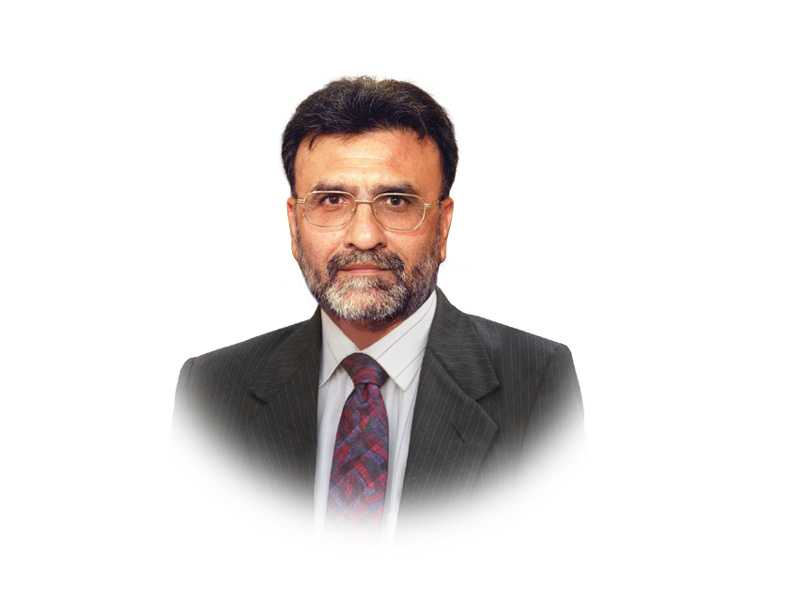
Until that year, he had remained a perfect specimen of the pliant judiciary that always worked for the comfort and pleasure of the successive governments in this country. It behaved doubly obsequious to various dictators in the khaki who kept surfacing on our power scene as self-declared saviors and system-builders.
The story had started with an obnoxious acceptance of the doctrine of necessity in the mid-fifties and it culminated with Musharraf’s takeover in October 1997. Justice Chaudhary had surely been a member of that full Supreme Court bench which legitimised this takeover and, without a blush, also granted him the powers to amend the constitution to consolidate his hold on power.
Yet the same Chaudhary began gathering the populist steam under his wings by preventing the privatisation of Pakistan Steel Mills in the late 2006. General Musharraf and his cronies were obsessed to integrate Pakistan’s economy with ‘global trends’ that were set via the so-called Washington Consensus. Eventually, they found Chaudhry as the main spoiler of their dreams and the rest as they say is history.
To be fair to Chaudhry, he took full advantage of the void that our deal-making politicians had created with no care for general good. “Governance” for them has remained a system where you enforce absolute command and control by employing all tools for buying and bullying. Chaudhry proved a subversive exception that tried shaking the status-quo. He had all attributes of a ‘hero’ that hapless wretched of our earth keep waiting in their prayers and folk songs. Miserably addicted to a rotten system of total control, neither Musharraf nor the Zardari-Gillani government could find the effective means to counter him and now he had left without a sustainable legacy.
I am witness to many moments of Justice Chaudhry’s rollercoaster career, but have no desire to recollect them with the intent of judging him. Let the history does the same and return to the present to report that most of my youthful colleagues in the press gallery kept wondering as to why the national assembly was behaving as if oblivious to ‘momentous happening’ of Chaudhry’s retirement on December 11.
Doing this, they failed to recall that only some weeks ago all sides of this house had joined hands to convey it to Justice Chaudhry that enough was enough. He could not force them to go through the ropes of local bodies’ elections, as per the schedule dictated by him. Soon, you would also see the parliament asserting its weight regarding appointment of judges to the superior courts.
Syed Khursheed Shah, the opposition leader, has been elected chairman of the Public Accounts Committee on the same date. The first thing he is set to do is to force the Registrar of the Supreme Court to appear before the PAC meetings with annual audit of the accounts of his institution. The ‘balancing moves’ are bound to come out slowly but steadily.
Reclaiming the ‘lost territory’ should not remain the sole obsession of ‘our representatives’, however. They have to address the accumulated problems of this country with some commitment and imagination and these two things remain missing to a frightening limit these days. For the past three sitting, for example, we have been enduring the yawn-inducing but nonstop discussion on unbearable increase in prices of the essential items. Without any exception, speakers from all sides recklessly turned this debate into cheap show of point scoring and breast-beatings.
Daniyal Aziz surely sounded too fresh in this context. Thanks to diligently researched and collected data, he brutally smashed the myth that the provincial governments could control prices by sending magistrates to markets. Federal government remains exclusively responsible when comes to control price hike with tough monetary measures. To prove his point, he widely quoted from agreements that both the previous and the present governments have signed with IMF in the name of bailout packages. Both the governments categorically promised to check and reduce the inflationary trends in Pakistan by adopting a strict monetary policy and by boldly addressing the issue of interest rates. Daniyal kept insisting that in spite of making these commitments, both the governments failed to deliver for they had no will and desire to annoy multiple cartels of businesspersons who continue to control the economy of Pakistan.
Published in The Express Tribune, December 12th, 2013.
1724668524-0/Untitled-design-(5)1724668524-0-405x300.webp)







1732011525-0/Express-Tribune-(8)1732011525-0-270x192.webp)








COMMENTS
Comments are moderated and generally will be posted if they are on-topic and not abusive.
For more information, please see our Comments FAQ